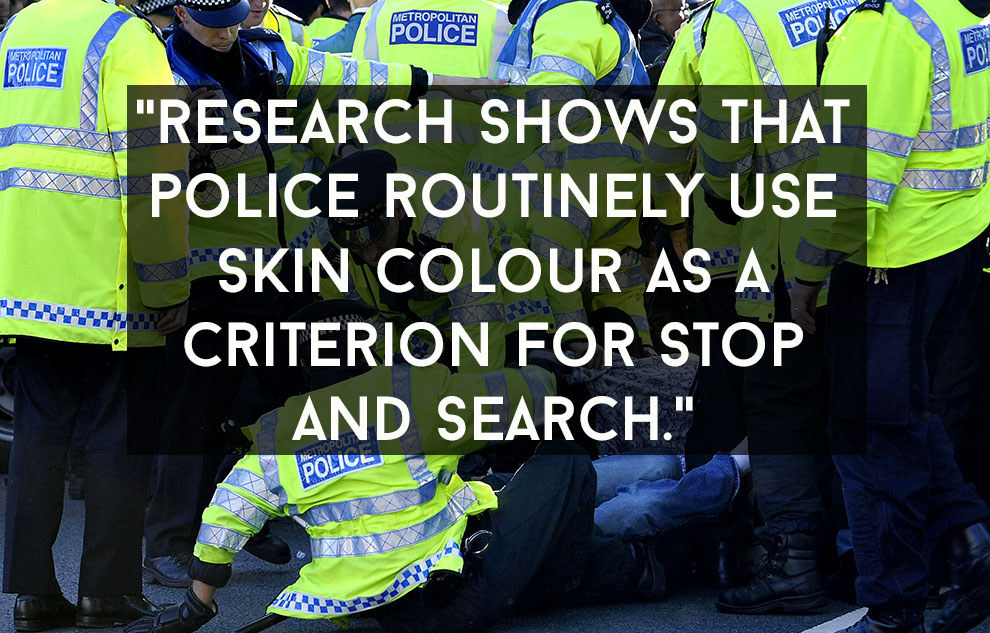
Zac Goldsmith, the Tory MP who is the party's frontrunner to be a candidate for London mayor, has said that efforts to reduce the use of police stop-and-search powers in the capital may be behind a "spike" in knife crime.
During an interview on LBC with Nick Ferrari, he said that the number of stop and searches had gone down by 65% because of an intervention by Theresa May, the home secretary. He said: "I know that people from the left, the right, and the police are wondering whether we've gone too far and that's one of the reasons why we're seeing an increase in knife crime."
However, the effectiveness of stop and search has been greatly put in doubt by several major studies over the last few years. Also, evidence suggests that it is disproportionately targeted at black and ethnic minority citizens, and that this is a cause of significant friction with those communities, making it harder for the police to do their job well.
Here is some of the research into the effectiveness and impacts of stop-and-search policies.
There is little evidence that stop-and-search powers do much to reduce crime by catching criminals.
According to research published in 2000 by the Home Office, "Based on the British Crime Survey, it is estimated that searches reduced the number of 'disruptable' crimes by just 0.2% in 1997".

It's hard to tell, but there's also not much reason to think that it deters crime.
The same research says: "There is little solid evidence that searches have a deterrent effect on crime. Certainly, within Metropolitan Police data there is no strong and consistent correlation between searches and crime levels a month later."
The research does say that there is some suggestion that just stopping people (without necessarily taking the extra and more intrusive step of searching them) may reduce crime, and that this could be to do with deterrence.
It probably doesn't help reduce the use or sale of drugs.
From the same Home Office report: "It is unlikely that searches make a substantial contribution to undermining drug-markets or drug-related crime in this way, given that drug searches tend to focus on users rather than dealers, and cannabis rather than hard drugs."

Those claims are backed up by the police watchdog.
The Independent Police Complaints Commission says: "There is little evidence to support the effectiveness of prevention, detection or deterrence of stop and search powers, which play into the community perceptions that stop and search is not effective."
You are hugely more likely to be stopped and searched if you are black or Asian.
According to research published in 2010 by the Equalities and Human Rights Commission (EHRC), stop-and-search powers are used six times as often on black people, and twice as often on Asian people, as they are on white people.

That is almost certainly due, at least in part, to racial stereotyping.
The EHRC report says that: "Police officers repeatedly explain to researchers that they stop black people because 'nine times out of 10 they would have drugs' or 'whenever a robbery comes in… 90 per cent you'll be thinking it's a black man'. In one Home Office study, a constable argued that, 'if 99 per cent of people committing robberies are black – and in an area like this they are – then you would expect to find 99 per cent of the stops/searches to be of black people'.
"Research evidence shows that police officers routinely use skin colour as a criterion for stop and search based on stereotyping and over-generalisations about the involvement of different ethnic groups in crime."
An alternative explanation, that black people are more likely to commit crimes, is not supported by the evidence, says the report, and even if it were true, stop and searches can only be carried out if there is "reasonable suspicion" of the individual in question. "It is unlawful for the police to base their suspicions on generalised beliefs about particular groups."
The focus on black and Asian citizens is hugely damaging to the police's relations with those communities.
Research published in the Law Review says: "Nothing has been more damaging to the relationship between the police and the black community than the ill-judged use of stop and search powers."
Again, the IPCC agrees: "People who are unhappy with stop and search encounters, in particular young people and those from black and minority ethnic backgrounds, have the least confidence both in the police and the police complaints system. Their experience is therefore likely to feed back into negative perceptions of policing."
